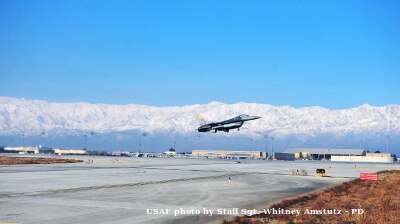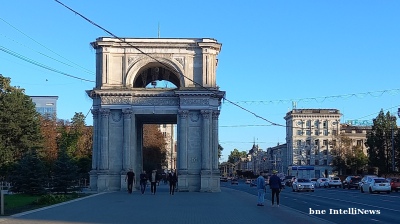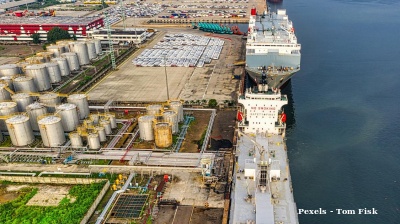China’s growing involvement in the Middle East, intensified by the recent escalation of violence in Gaza, is prompting renewed scrutiny of Beijing’s regional strategy, The Jerusalem Post reports. Traditionally focused on securing access to energy resources, safeguarding trade corridors, and expanding infrastructure investments, particularly in the Gulf, China's approach has until recently been marked by strategic ambiguity and a reluctance to take clear sides in regional rivalries.
However, shifting geopolitical realities, the erosion of US influence, and mounting instability across the Middle East are challenging Beijing’s longstanding posture of non-intervention and neutrality, especially in relation to its dealings with Iran and Israel.
Energy security and trade corridors
Energy security remains central to China’s engagement in the region. As the world’s leading oil importer, China currently sources approximately 40% of its oil from the Middle East; a figure projected to double by 2035. This dependency leaves Beijing vulnerable to disruptions in maritime chokepoints such as the Red Sea and the Strait of Hormuz, which are also vital routes for Chinese trade with Europe and Africa.
Beyond oil, The Jerusalem Post reports that China’s Belt and Road Initiative (BRI) has created a complex network of economic interests across the region. Saudi Arabia has emerged as China’s primary trading partner in the Middle East, with bilateral trade reaching over $107bn in 2024. This underscores Beijing’s intent to deepen economic ties even amid intensifying regional rivalries.
Balancing a diplomatic evolution
Historically cautious in its diplomacy, China has in recent years adopted a more proactive approach in managing its regional relationships. This recalibrated strategy seeks to maximise strategic partnerships without overtly alienating any one actor.
As such, China’s simultaneous cooperation with Saudi Arabia whose Vision 2030 reform agenda aligns in part with the BRI, alongside its alignment with Iran, highlights this nuanced balancing act.
At the same time, Beijing continues to lead diplomatic efforts, engaging both the United States and Arab leaders in attempts to de-escalate tensions.
It maintains a careful distinction between political rhetoric and operational policy, condemning Israeli military actions while expressing consistent support for the Palestinian cause and preserving economic ties with Iran despite Tehran’s links to groups such as Hamas and Hezbollah.
Iran-Israel conflict: a turning point
The recent military confrontation between Iran and Israel, sparked in June, has served as a critical juncture in China’s regional calculus. US-led strikes on Iranian nuclear facilities, and Israel’s expanded military posture, have combined to expose the limitations of Beijing’s neutral stance the same report indicates. This has placed strain on China’s ties with Iran, highlighting the latter’s weakened strategic position and internal instability.
At the same time, China is increasingly engaging with Israel, especially in areas such as science, high technology, and innovation. Bilateral trade between the two nations reached $16.27bn in 2024, with Israeli exports exceeding Chinese imports for the first time. This upward trend reflects Israel’s growing value within Beijing’s strategic framework and syncs with other nations in northeast Asia closer to Israel than Iran such as Japan, Korea and Taiwan.
To this end, despite a long-standing partnership with Tehran - including a pledge to invest $400bn in Iranian infrastructure under the BRI - China has recently adopted a more critical tone toward Iran’s leadership.
Accusations of ideological inflexibility and geopolitical misalignment have surfaced in Chinese academic and policy circles, with some analysts suggesting the regime in Tehran no longer serves Beijing’s broader regional ambitions.
A shift towards Israel
In Israel meanwhile, some have called for a reassessment of relations with China, despite limitations imposed by close ties to Washington. This reassessment could present Israel with an opportunity to strengthen its presence in Asian markets, diversify its regional relationships, while at the same time exploring deeper engagement with countries across the Global South; a region Iran struggles to relate to.
For China too, even a modest shift towards Israel signals a broader diplomatic realignment.
Strengthening bilateral ties could position Beijing as a stabilising influence in the region, offering a counterweight to Iran’s destabilising presence while helping to mediate complex regional disputes. In doing so, China enhances its image as a pragmatic, moderate power willing to engage with diverse actors across the geopolitical spectrum.
Recognition from Beijing would also further elevate Israel’s standing on the world stage, beyond its traditional alignment with the United States.
It would in turn open new avenues for cooperation in fields such as artificial intelligence, agriculture, health care, and advanced manufacturing, while boosting Israeli access to China’s vast consumer market.
Moreover, China’s engagement with Israel could prompt a more balanced regional discourse, potentially influencing opinions across the Global South and reshaping international perceptions of the Israeli-Palestinian conflict.
Beijing’s geopolitical calculations
At present therefore, China’s evolving stance forms part of a broader geopolitical strategy aimed at enhancing its global reach and diplomatic flexibility. By cultivating bilateral and multilateral ties across the Middle East, Beijing is constructing a framework that reduces dependency on any single actor and bolsters its credibility as a potential mediator in conflicts ranging from intra-Palestinian tensions to the Russia-Ukraine war.
While this shift may provoke resistance from Iran and draw criticism from segments of the Muslim world and the West, its success will largely hinge on China’s ability to project its moves as pragmatic rather than revisionist. Provided Beijing maintains its stance of non-alignment on the surface, and avoids overtly challenging US primacy in the region, it could recalibrate the strategic balance in the Middle East while positioning itself as a responsible global power.
Features

Trump eyes Bagram return, with China in his sights
In the years it was operational, 14 nations operated at, or through Bagram. In addition to the US, these included UK forces and elements from France, Germany, South Korea and more.

$23bn windfall for Kazakhstan as Beijing shifts up a gear on New Silk Road
Resource-rich Central Asian country emerges as a standout destination for Chinese investment.

US cancels Chabahar port sanctions exemption in blow to India's regional strategy
US terminates Iran Chabahar port sanctions waiver from September 29, jeopardising India's strategic trade operations and regional connectivity initiatives through the key facility.

INTERVIEW: Moldova seizes its moment
From rapid progress towards EU accession to the reconstruction of neighbouring Ukraine, factors have aligned to make Moldova an attractive FDI destination, says Invest Moldova head Natalia Bejan.




